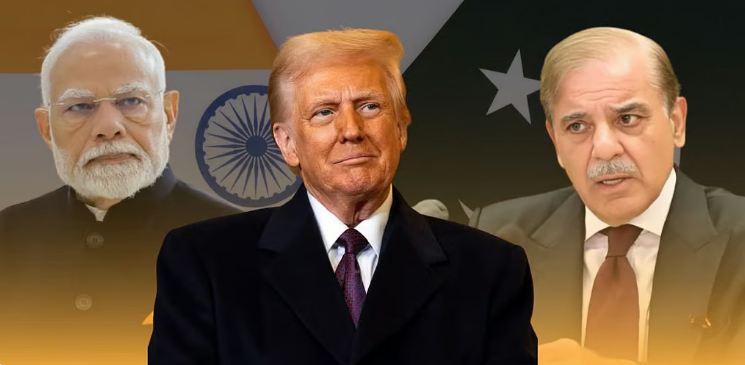US Official: Kashmir an Issue Between India & Pakistan, Trump Open to Help if Asked
By: Javid Amin | 25 September 2025
A Diplomatic Reminder from Washington
A senior US official on Thursday reaffirmed Washington’s longstanding position that Kashmir remains a direct issue between India and Pakistan, while adding that President Donald Trump is “open to help”—but strictly on the condition that both nations invite US involvement.
The statement, delivered during a press briefing in Washington, has reignited debate on the role of international actors in South Asia’s most sensitive conflict zone.
Key Takeaways from the Statement
-
The US is not seeking to mediate unless both New Delhi and Islamabad request it.
-
Trump “respects the sovereignty of both nations,” the official emphasized.
-
Washington is willing to play a role in confidence-building measures or facilitation, not arbitration.
-
The remarks came against a backdrop of renewed LoC tensions and rising concern over human rights and security in Kashmir.
India’s Position: No Third-Party Role
India has consistently rejected third-party mediation, citing the 1972 Shimla Agreement and the 1999 Lahore Declaration, which mandate that Kashmir-related issues must be resolved bilaterally between New Delhi and Islamabad.
-
For India, outside involvement undermines sovereignty and risks emboldening Pakistan’s international lobbying.
-
New Delhi has previously rebuffed similar offers from US presidents—including Trump himself in 2019 when he made a surprise mediation remark during a meeting with Imran Khan.
Pakistan’s Stand: Global Spotlight Needed
Pakistan, in contrast, has welcomed international involvement for decades, citing UN Security Council resolutions and alleging systematic human rights violations in J&K.
-
Islamabad argues that mediation is essential because bilateral talks have repeatedly stalled.
-
The US official’s fresh remarks provide Pakistan with diplomatic talking points, reinforcing its call for external facilitation.
Implications for Kashmiris
For ordinary Kashmiris, the US statement underscores a recurring reality: their future remains entangled in high-level diplomacy over which they have little direct say.
-
Symbolic Impact: It keeps Kashmir alive in international conversations, countering narratives that it is a “settled issue.”
-
Practical Limits: Without consent from both India and Pakistan, US or global involvement remains unlikely to materialize.
-
Human Rights Lens: References to LoC tensions and humanitarian concerns ensure the Valley remains under global watch.
Strategic Context
The remarks also arrive at a sensitive time:
-
LoC Tensions: Reports of increased shelling and infiltration attempts have heightened regional unease.
-
China Factor: Ladakh standoff continues to complicate South Asia’s strategic landscape.
-
Domestic Unrest: Protests in Leh and renewed statehood debates in J&K add another layer of volatility.
Against this backdrop, the US reminder about Kashmir’s unresolved nature—though couched in cautious diplomacy—carries weight.
Bottom-Line
While President Trump’s “openness to help” is not new, the framing of Kashmir as a direct bilateral issue between India and Pakistan reinforces Washington’s preference for non-intervention unless invited.
For Kashmiris, however, the very fact that the conflict continues to be referenced on global stages serves as both a reminder of their visibility—and the enduring fragility of their political reality.



